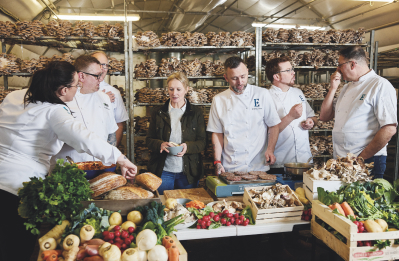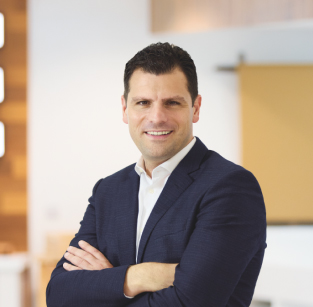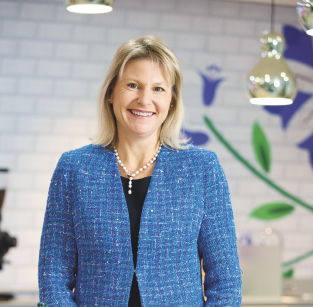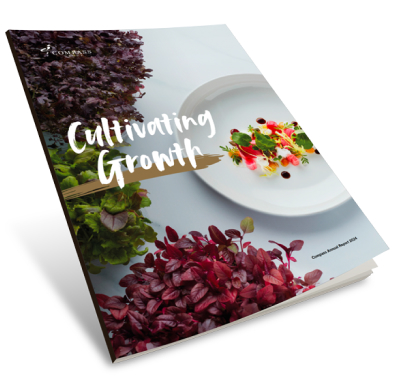Strategy
We have a clear strategy which is focused on providing outsourced food services, together with targeted support services. The outsourcing market remains very attractive, driven by increasingly complex consumer demands, the desire for cost savings, and macroeconomic pressures. Our addressable market is estimated to be worth c.$320 billion, with a significant opportunity available from first-time outsourcing.
We have continued to refine our portfolio to become an even more focused business, going deeper into our core markets, where there remain significant growth opportunities.
People
With around 580,000 colleagues across the world, people are at the heart of our business and integral to our continued success. We are focused on attracting, developing and retaining the best talent. We provide opportunities to diverse people from the communities we serve, underpinned by our principles of respect, teamwork and growth.
I would like to thank all our people for their continued hard work and commitment to the business. Without their dedication, Compass would not be able to achieve its goals.
Financial results
The Group delivered strong organic revenue growth of 10.6%1 and underlying operating margin increased by 30bps to 7.1%1. This resulted in underlying operating profit increasing by 16.4%1 on a constant-currency basis to $2,998 million1. On a statutory basis, revenue increased by 10.8% to $42,002 million and operating profit was up 11.7% to $2,584 million.
Shareholder returns
The Board recognises the importance of returning capital to shareholders through dividends and share buybacks. In line with our policy of paying out 50% of underlying earnings, the Board has declared a final dividend of 39.1 cents per share, which, when added to the interim dividend, provides a total dividend for the year of 59.8 cents per share. We also provided additional returns in the form of a $500 million share buyback.
Sustainability
Our Planet Promise is the Group’s global commitment to a sustainable future for all. It encompasses our values as an ethical, sustainable, and inclusive business, together with our ambition to positively impact the world. As well as being the right thing to do, this mission is also key to our growth aspirations as sustainability is also a priority for many of our clients.
Governance and Board changes
Several changes were made to the Board during the year, including the retirement of some familiar faces, the arrival of new colleagues, and changes to roles and responsibilities.
In the first half of the year, Gary Green and Carol Arrowsmith retired from the Board. Palmer Brown took over from Gary in the US, and Petros Parras succeeded Palmer as the Group CFO. In the second-half we appointed two new directors, Liat Ben-Zur and Juliana Chugg who, together with their non-executive colleagues, bring balance and a wealth of skills and experience to our organisation which complement the talents of our strong executive team. I thank them all for their valuable contributions and also wish good luck to Ireena Vittal and Nelson Silva who, after nine years, will retire from the Board at the conclusion of the 2025 AGM. Liat Ben-Zur succeeded Ireena as Designated Non-Executive Director for Workforce Engagement in October, and Arlene Isaacs-Lowe will succeed Nelson as Chair of the Corporate Responsibility Committee when he retires from the Board in February. More details of the above are in the Nomination Committee report on page 82 of the full Annual Report.
Summary
2024 was another strong year for Compass. We delivered good top-line growth with margin progression, whilst further improving the quality of our portfolio and increasing investment in core markets.
We are continuing to take advantage of opportunities for growth, particularly in first-time outsourcing, by leveraging our significant scale, culinary expertise and sectorised approach to the market through the Group’s unique brand portfolio.
We look forward to continued success based on our focused strategy, and to generating sustainable compounding shareholder returns over the long-term.


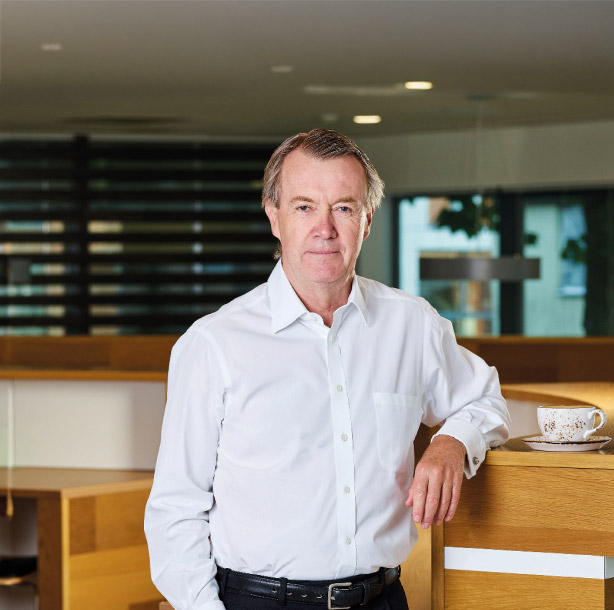





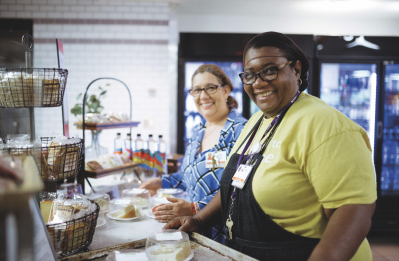
 Underlying revenue
Underlying revenue

